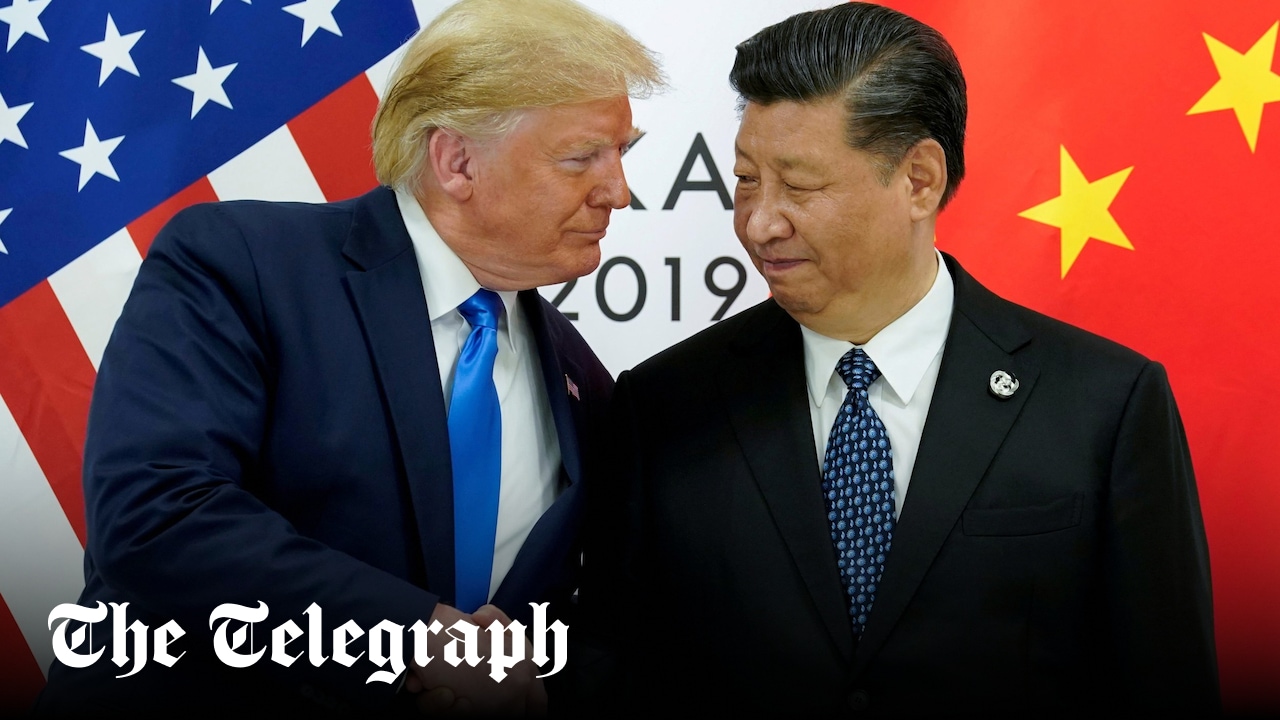China's Nuclear Trade Option: A New Card in the US-China Game?
China's growing economic and military power is reshaping the global landscape, and its potential use of nuclear trade as a strategic tool against the United States is a developing concern. While not explicitly stated as policy, the possibility of leveraging its nuclear capabilities in trade negotiations or as a form of geopolitical pressure warrants careful examination. This article delves into the complexities of this emerging scenario, analyzing the potential implications for global stability and the future of US-China relations.
The Nuances of China's Nuclear Posture:
China maintains a "no first use" nuclear policy, emphasizing its nuclear arsenal primarily as a deterrent. However, the country's expanding nuclear capabilities, including advancements in missile technology and its growing stockpile of warheads, are raising eyebrows internationally. The perceived ambiguity surrounding its nuclear doctrine leaves room for speculation regarding its potential use as leverage in geopolitical disputes.
Nuclear Trade as a Strategic Tool:
China's expanding influence in the global nuclear industry, particularly its role in supplying nuclear technology and fuel to several countries, presents a potential avenue for exerting geopolitical influence. While currently adhering to international non-proliferation norms, a shift in its approach could have significant consequences. Imagine scenarios where:
- Trade restrictions are imposed on countries perceived as allies of the US: China could restrict the supply of nuclear fuel or technology to these nations, creating economic and energy security challenges.
- Favorable trade deals are contingent on nuclear cooperation: This could involve pressure to limit engagement with US-led nuclear initiatives or to adopt more China-friendly nuclear policies.
- Nuclear technology transfer is used as a bargaining chip: Access to advanced nuclear technology could be offered to nations willing to align themselves more closely with China’s geopolitical objectives.
The US Response and Potential Consequences:
The United States is likely to respond to any such move with a multifaceted strategy that includes:
- Strengthening alliances: Reinforcing existing partnerships and forging new ones to counter China's influence.
- Diversifying nuclear supply chains: Reducing reliance on Chinese-sourced nuclear technology and fuel.
- Imposing sanctions: Targeting Chinese entities involved in the potential misuse of nuclear trade.
- Diplomatic pressure: Engaging in bilateral and multilateral discussions to discourage such actions.
However, escalating the situation through direct confrontation could have disastrous consequences. A nuclear arms race in the Asia-Pacific region would destabilize the area and have global implications.
The Path Forward: Diplomacy and De-escalation:
The potential for China to weaponize nuclear trade against the US necessitates a cautious and nuanced approach. Open communication and diplomatic engagement are crucial to prevent escalation. Both countries need to prioritize de-escalation, focusing on strengthening international non-proliferation norms and fostering greater transparency regarding their nuclear policies. Failure to do so risks a dangerous game of brinkmanship with potentially catastrophic outcomes.
Conclusion:
While the use of nuclear trade as a strategic weapon by China remains a hypothetical scenario, the increasing possibility demands proactive engagement from the international community. A focus on transparent communication, robust non-proliferation agreements, and the fostering of mutual trust is essential to mitigate the risks and navigate this complex geopolitical landscape. The future of global security hinges on navigating this challenge responsibly and strategically.
Keywords: China, Nuclear Trade, US-China Relations, Geopolitics, Nuclear Weapons, Non-proliferation, International Security, Nuclear Power, Global Politics, Economic Sanctions, Diplomatic Relations.

